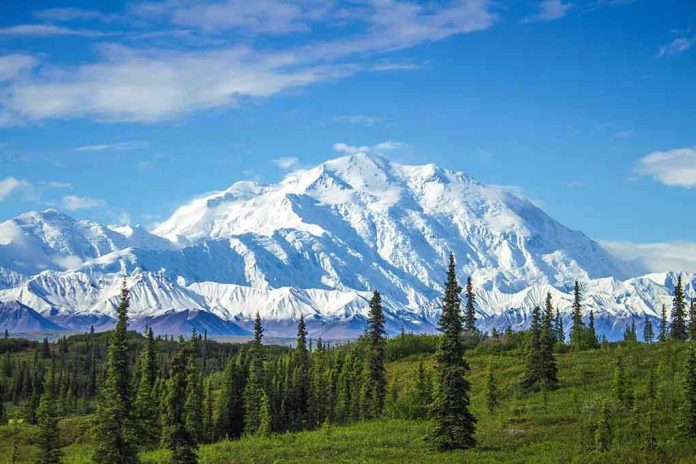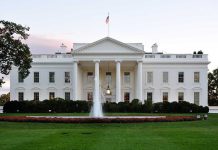
President Trump’s approval of the Ambler Road project rekindles a fierce debate over resource development and environmental preservation, with significant implications for Alaska’s wilderness and U.S. mineral independence.
Story Highlights
- The Ambler Road project, a 211-mile mining road, will resume after being halted by the Biden administration.
- The project aims to boost domestic mineral production, countering reliance on foreign sources.
- The decision has sparked controversy over environmental and tribal impacts.
- Trump’s administration prioritizes economic growth and national security through resource independence.
Trump’s Executive Order: A Strategic Move for Mineral Independence
On October 6, 2025, President Donald Trump issued an executive order to advance the construction of the Ambler Road, a 211-mile gravel road through Alaska’s wilderness. This strategic move is aimed at facilitating mining operations for copper, cobalt, gold, and other minerals in the Ambler mining district, a region north of Fairbanks. The project, initially approved during Trump’s first term, was previously halted by the Biden administration due to environmental and tribal concerns. Trump’s order directs federal agencies to reissue permits and begin construction in spring 2026.
The significance of this decision lies in its potential to reduce U.S. dependence on foreign minerals, particularly from China, thus enhancing national security. The Ambler Road is framed as a necessity for economic competitiveness and mineral independence, directly aligning with the Trump administration’s priorities of fostering economic growth and strengthening the U.S. mineral supply chain.
Environmental and Tribal Concerns: A Heated Debate
The Ambler Road project has been a flashpoint of controversy, pitting economic interests against environmental and tribal rights. The Biden administration previously halted the project, citing potential irreparable harm to permafrost, caribou, and the subsistence hunting practices of Alaska Native tribes. Environmental groups and Native communities argue that the road could have lasting detrimental effects on the ecosystem and their traditional way of life.
Despite these concerns, the Trump administration emphasizes the project’s economic benefits, including job creation in construction and mining sectors. The federal government’s 10% equity stake in Trilogy Metals signals a commitment to advancing the project, underscoring its importance to U.S. strategic interests and economic policy.
Economic and Political Implications: A Double-Edged Sword
The revival of the Ambler Road project is expected to generate immediate economic benefits, particularly job opportunities, and bolster the U.S.’s critical mineral supply chain. However, it also intensifies political and legal conflicts, with environmental and tribal groups gearing up for legal challenges against the project.
Long-term implications of the project include potential irreversible damage to Alaska’s permafrost and wildlife, setting a precedent for future resource development in protected areas. The decision has polarized public opinion, reflecting broader national debates over resource exploitation, environmental conservation, and indigenous rights.
Sources:
Trump inks order to advance halted Alaska mining order
Trump approves Alaska mining road to boost copper, zinc production
Trump orders approval of 211-mile mining road through Alaska wilderness
President Donald J. Trump approves Ambler Road project to unlock Alaska’s mineral potential
Trump revives Alaska mining road project scuttled by Biden
Trump approves Alaska mining road
President Trump revives Ambler Road project to unlock Alaska’s critical minerals, boost economy




